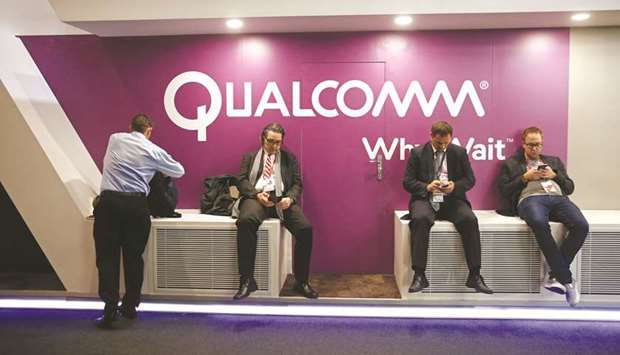Qualcomm, the world’s No 1 chip maker, was fined €242mn ($272mn) by the European Commission yesterday for blocking a rival from the market about a decade ago, its second EU antitrust penalty.
The European Commission, the EU’s competition regulator, accused Qualcomm of predatory pricing between 2009 and 2011 aimed at forcing out British phone software maker Icera, now part of Nvidia Corp.
“Qualcomm’s strategic behaviour prevented competition and innovation in the market,” Competition Commissioner Margrethe Vestager said in a statement.
In a news conference, she later defended the time it had taken to reach a decision — the Commission first accused the company of predatory pricing in 2015 — saying it had been a complex case that depended on evidence from Qualcomm.
The fine amounts to 1.27% of Qualcomm’s turnover in 2018.
Qualcomm said it would appeal the decision, saying it was “unsupported by the law, economic principles or market facts.” The Commission also fined Qualcomm €997mn ($1.1bn) last year for paying iPhone maker Apple to use only its chips, a tactic aimed at thwarting rivals including Intel.
The Commission is investigating another US chipmaker, Broadcom, over whether it hampers rivals.
Vestager said the Commission may impose so-called interim measures, which are typically warnings to change behaviour, in early autumn.
Qualcomm has been targeted by other enforcers for its business practices.
In May, it lost an antitrust lawsuit brought by the Federal Trade Commission, with the judge issuing a sweeping antitrust ruling against the company.
Hefty fines, in particular against US tech giants, have been a hallmark of Vestager’s five-year run as Europe’s antitrust enforcer, a policy which has earned her the ire of US President Donald Trump.
Vestager said she hoped to remain in the post when a new Commission takes office in November, but did not rule out another role.
Her term ends on October 31.
“Our investigation found that Qualcomm abused” its market “dominance between mid-2009 and mid-2011 by engaging in predatory pricing,” an EU statement said.
The chips in question in the EU case “are key components so that mobile devices can connect to the internet,” Vestager said in a statement.
“Qualcomm sold these products at a price below cost to key customers with the intention of eliminating a competitor,” she added.
The EU said that Qualcomm sold the chipsets to Chinese giants Huawei and ZTE, strategic customers, “with the intention of eliminating Icera, its main rival at the time”.
Icera was acquired in May 2011 by the US technology company Nvidia, which decided in 2015 to liquidate the business that was subject to the Commission’s investigation.
The EU fine “is unsupported by the law, economic principles or market facts, and we look forward to a reversal on appeal,” said Don Rosenberg, general counsel of Qualcomm.
Huawei and ZTE chose Qualcomm chips “not because of price but because rival chipsets were technologically inferior,” Rosenberg insisted. The blow against Qualcomm comes after a US court ruled in May that the firm “strangled competition” and must renegotiate price deals in a case with major implications for the smartphone market.
In recent years, Qualcomm was also slapped with fines in South Korea and Taiwan over anti-trust concerns.
Qualcomm meanwhile in April buried the hatchet with Apple after two years of legal battles over royalties.
For two years, the companies had fought a multi-front brawl that could have required Qualcomm to pay billions.
Vestager, the EU’s competition czar, has received specific criticism by US Donald Trump for her series of cases against US tech giants that also include Apple, Google and Amazon.
The Commission imposed three major fines on Google totalling 8.25 billion euros in cases involving its Android operating system, Google Shopping and its advertising network AdSense.

Visitors check their mobile devices outside the Qualcomm pavilion at the Mobile World Congress in Barcelona (file).
